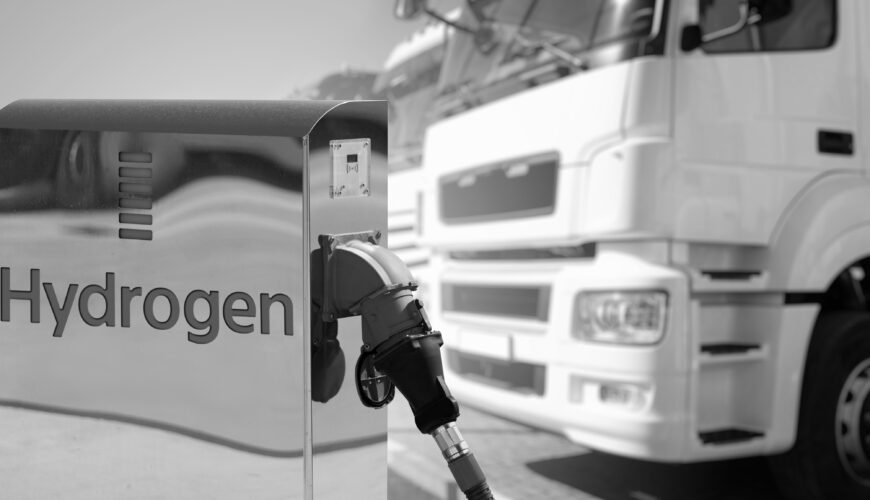There’s so much chatter around EV technology in electric vehicles and trucks that it’s easy to forget other potential power sources that can serve as alternatives to fossil fuels. While EV trucks offer much potential, there’s still a long way to go before the infrastructure and technology itself is perfected. Many truck manufacturers are betting on it, however, and are investing time and capital in getting there. In the meantime, however, other truck manufacturers are looking at alternatives.
One of the potential stopgaps, or full-on alternatives, is hydrogen electric fuel-cell trucks. Right now, these are first-generation options, but some fleets are adopting them anyhow, ready to launch them on the roads in early 2024. These companies, many of whom operate in California where legislation will require trucks meet zero emissions in a phased-in approach, are betting on hydrogen before electric vehicles. California may well be the first of many states that will line up with this approach, however.
Why is hydrogen getting attention right now? It has some advantages over electric vehicle technology. One is that it can offer rigs longer trips, as well as faster recharging. Both are drawbacks to the current state of EV technology. Hydrogen also offers the prospect of pulling heavier loads—to a tune of several thousand pounds–than can EV batteries, making routes more efficient. EV trucks can travel about 300 miles right now and take several hours to charge. Hydrogen trucks, in contrast, have a range of up to 500 miles. To refuel, truckers only need about 30 minutes of downtime.
Even with all those benefits, however, hydrogen hasn’t received the attention, investment, or incentives that EV technology has. One of the barriers to hydrogen trucks is cost, although EVs are also an expensive alternative. Hydrogen fuel-cell rigs begin in the price range of $450,000, which is approximately triple that of diesel trucks. Right now, fleets who are betting on hydrogen are mainly in California, where the state and local municipalities and ports are offering incentives for the investment. Still, the infrastructure for hydrogen remains a big barrier to its full-scale implementation. California is promising a roll out of such infrastructure, but companies take a gamble when counting on the if and when of that equation. EV trucks, in contrast, are already rolling out, with more than a dozen fleets in California leading the way.
Among the trucking companies investing in hydrogen fuel are Nikola, Kenworth, Volvo, and Hyundai Motor, which could be enough to help jump start the interest and support of the alternative. Some are also investing in fueling sites around major trucking corridors, spreading nationwide in the next five years. Because the market is so small for hydrogen, however, the cost to fill a truck is four times that of diesel.
Despite the barriers, expect more development in the arena of hydrogen. Climate change and regulatory pressures will require changes in long-haul trucking, and the more innovation in that arena, the better.


